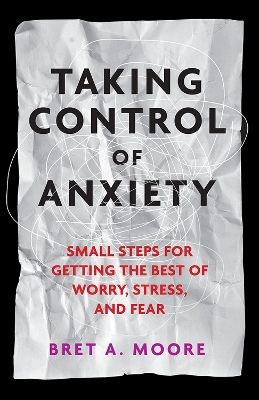LifeTools: Books for the General Public
2 total works
As a military service member, you're looking forward to life after deployment and being back home among family and friends. But adjusting to ""normal"" life again can bring its own challenges. You're not the same person you were when you left on deployment. This book, written by military psychologists Moore and Kennedy, is a down-to-earth guide that's full of practical advice. The authors talk straight about both the joys and challenges of returning home, advising that one size does NOT fit all when it comes to making the transition. They share thoughtful, constructive tips for dealing with unwanted surprises like relationship break-ups, financial problems, and kids who are suddenly strangers. Experiences shared by many returning service members, like sleep disturbances, anger management, and learning to live with ""hyperstartle,"" are also discussed. For those whose transition has been more difficult, chapters on identifying the signs of PTSD, living with disturbing memories, and seeking relief from suicidal thoughts are particularly valuable. A final appendix is the definitive guide to support services for military members, with resources on everything from kid's books to financial management websites.|As a military service member, you're looking forward to life after deployment and being back home among family and friends. But adjusting to ""normal"" life again can bring its own challenges. You're not the same person you were when you left on deployment. This book, written by military psychologists Moore and Kennedy, is a down-to-earth guide that's full of practical advice. The authors talk straight about both the joys and challenges of returning home, advising that one size does NOT fit all when it comes to making the transition. They share thoughtful, constructive tips for dealing with unwanted surprises like relationship break-ups, financial problems, and kids who are suddenly strangers. Experiences shared by many returning service members, like sleep disturbances, anger management, and learning to live with ""hyperstartle,"" are also discussed. For those whose transition has been more difficult, chapters on identifying the signs of PTSD, living with disturbing memories, and seeking relief from suicidal thoughts are particularly valuable. A final appendix is the definitive guide to support services for military members, with resources on everything from kid's books to financial management websites.
Anxiety, in different forms, affects almost everyone at one time or another. For spurring you to make decisions or perform, it can actually be helpful. But when anxiety gets out of hand, whether it's from everyday stress or a severe chronic condition such as panic, posttraumatic stress, or overwhelming worry, you need to learn how to manage.
This straightforward guide, filled with compelling case examples and easy to use techniques, will teach you to identify, reduce, eliminate, and prevent the negative effects of anxiety.
Drawing on the field's most well established and studied methods for reducing anxiety, Dr. Moore compiles them here in one source. Free from scientific jargon, this concise how-to book can be a ready reference on your desk or nightstand or in your backpack or briefcase.
You will learn how to tweak your daily schedule, your thinking patterns, and your reactions to the things you fear, for maximum gains in your life. While the book emphasizes self-help techniques, it also de-mystifies anxiety medications and offers guidance for finding professional help, should you need it.
Overcoming anxiety doesn't have to be complicated. Following the step-by-step checklists and detailed plans in this book will get you on your way.
This straightforward guide, filled with compelling case examples and easy to use techniques, will teach you to identify, reduce, eliminate, and prevent the negative effects of anxiety.
Drawing on the field's most well established and studied methods for reducing anxiety, Dr. Moore compiles them here in one source. Free from scientific jargon, this concise how-to book can be a ready reference on your desk or nightstand or in your backpack or briefcase.
You will learn how to tweak your daily schedule, your thinking patterns, and your reactions to the things you fear, for maximum gains in your life. While the book emphasizes self-help techniques, it also de-mystifies anxiety medications and offers guidance for finding professional help, should you need it.
Overcoming anxiety doesn't have to be complicated. Following the step-by-step checklists and detailed plans in this book will get you on your way.

